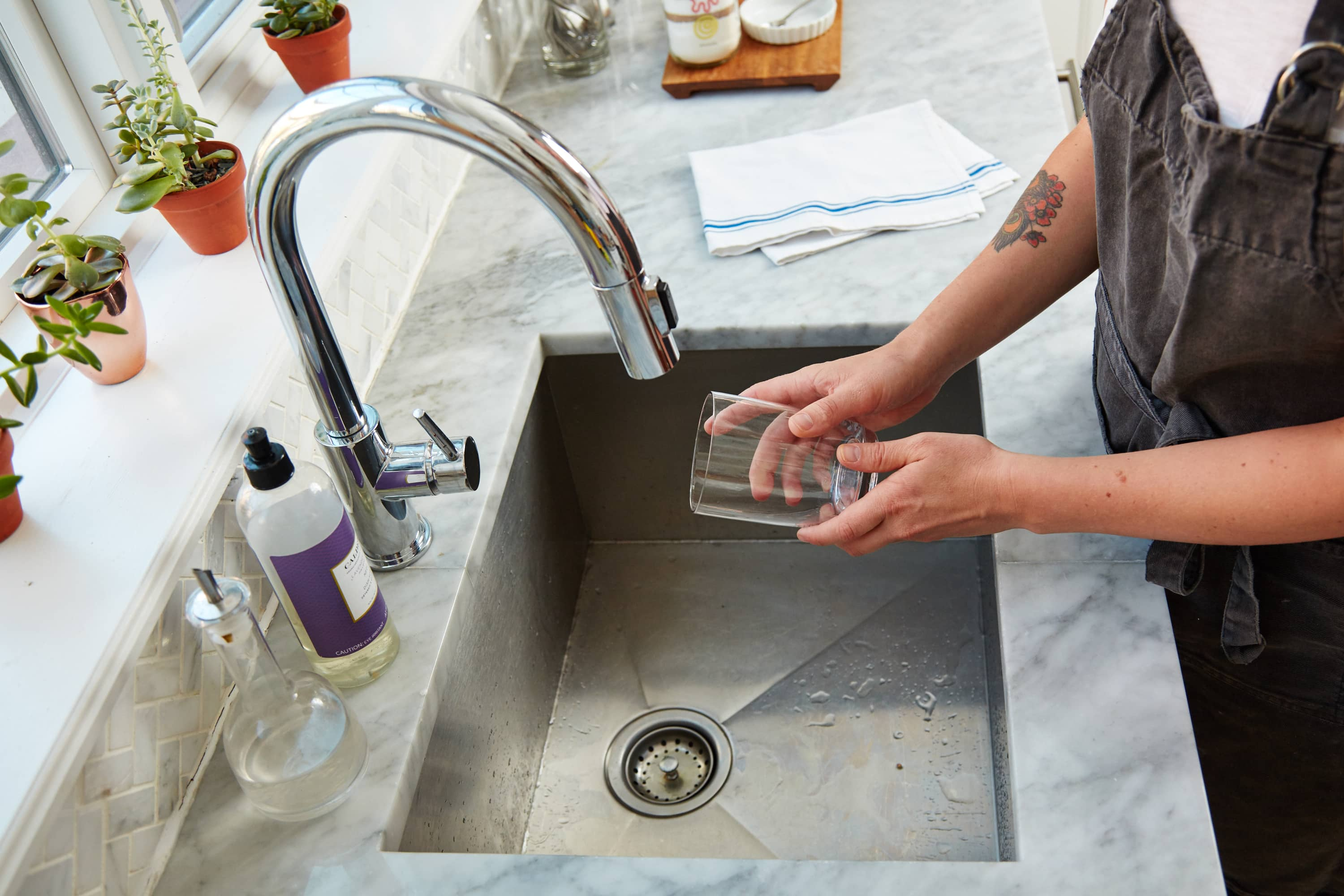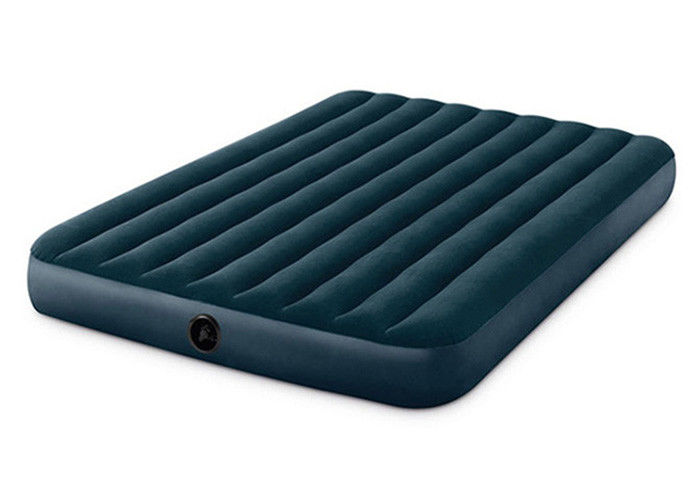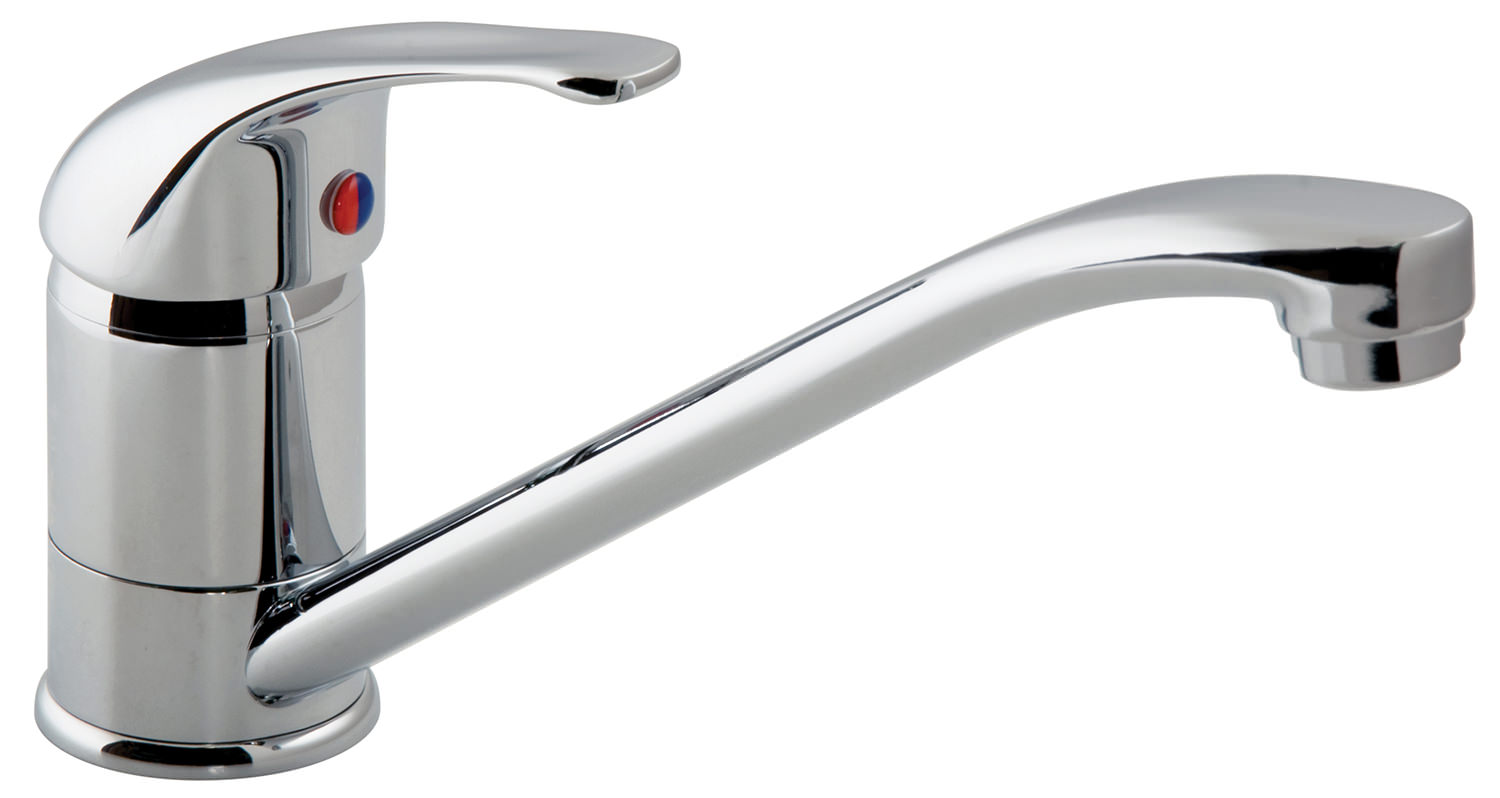If you've noticed a musty smell coming from your kitchen sink, you're not alone. This unpleasant odor can be caused by a variety of factors, but the good news is, it's usually easy to fix. Here are some common causes of a musty smell in the kitchen sink and how to get rid of it. One of the most common causes of a musty smell in the kitchen sink is a buildup of food and debris in the drain. This can happen over time as food particles and grease get washed down the drain and start to decompose. To get rid of the smell, try pouring a mixture of hot water and vinegar down the drain. The hot water will help to loosen any buildup, while the vinegar will help to eliminate any bacteria that may be causing the odor. Another possible cause of a musty smell in the kitchen sink is a clogged or partially clogged drain. When the water can't flow freely through the pipes, it can start to accumulate and create a stagnant, musty smell. To fix this, you can try using a plunger to clear the clog, or a plumbing snake to remove any debris that may be blocking the pipes.1. Causes and Solutions for a Musty Smell in the Kitchen Sink
In addition to using hot water and vinegar, there are other natural remedies you can try to get rid of a musty smell in the kitchen sink. Baking soda is a great option, as it can help to absorb odors and break down any buildup in the drain. Simply pour about half a cup of baking soda down the drain, followed by a cup of hot water. Let it sit for a few minutes before flushing it out with more hot water. If the musty smell persists, you can also try using essential oils to freshen up your kitchen sink. Peppermint, lemon, and tea tree oil are all great options for eliminating odors and leaving behind a fresh, clean scent. Simply mix a few drops of your chosen oil with hot water and pour it down the drain.2. How to Get Rid of a Musty Smell in the Kitchen Sink
Prevention is key when it comes to keeping your kitchen sink smelling fresh and clean. Here are some tips to help you avoid a musty smell in the first place: Keep your sink clean: Make sure to regularly clean your sink and drain to prevent any buildup of food and debris. You can use a mixture of hot water and dish soap, or a natural cleaner like vinegar and baking soda. Use a drain strainer: A drain strainer can help to catch any food particles or debris before they make their way into the drain and cause a buildup. Simply empty out the strainer regularly to keep it functioning properly. Avoid putting certain foods down the drain: Grease, oils, and fibrous foods like potato peels and coffee grounds should never be put down the drain. These can all contribute to clogs and unpleasant odors.3. Tips for Eliminating a Musty Odor from Your Kitchen Sink
In addition to buildup and clogs, there are a few other common reasons why your kitchen sink may have a musty smell: Mold or mildew: If your sink or drain is constantly damp, it can start to grow mold or mildew. This can cause a musty, sometimes earthy smell. To get rid of it, you'll need to thoroughly clean and dry the area, and make sure to fix any leaks that may be causing the dampness. Broken or damaged pipes: If you've tried all of the above solutions and the musty smell persists, it's possible that there may be a more serious issue with your pipes. Broken or damaged pipes can allow bacteria and debris to accumulate, causing unpleasant odors. In this case, it's best to call a professional plumber to assess and fix the problem.4. Common Reasons for a Musty Smell in the Kitchen Sink
If you prefer to use natural remedies, there are a few more options you can try to get rid of a musty smell in the kitchen sink: Lemon juice: Lemon juice is a natural deodorizer and can help to cut through grease and grime in the sink. Simply pour some lemon juice down the drain and let it sit for a few minutes before flushing it out with hot water. Salt and baking soda: A mixture of salt and baking soda can help to break down tough buildup in the drain. Mix equal parts of each and pour it down the drain, followed by hot water.5. Natural Remedies for a Musty Smell in the Kitchen Sink
Once you've gotten rid of the musty smell, it's important to take steps to prevent it from coming back. Here are some simple tips to keep your kitchen sink smelling fresh and clean: Run hot water after each use: After using the kitchen sink, run hot water for a few seconds to help flush out any remaining food particles or debris. Use a garbage disposal: If you have a garbage disposal, use it regularly to help break down any food that may have made its way into the drain. Regularly clean your sink and drain: Make sure to regularly clean and disinfect your sink and drain to prevent any buildup or bacteria from causing a musty smell.6. How to Prevent a Musty Smell from Coming Back in Your Kitchen Sink
If you're a fan of DIY solutions, there are a few more options you can try to eliminate a musty smell in your kitchen sink: Vinegar and citrus peels: Save your citrus peels and place them in a jar of vinegar for a few days. Then, pour the mixture down the drain to help eliminate odors. Borax and salt: A mixture of borax and salt can help to deep clean your drain and get rid of any stubborn buildup. Mix equal parts of each and pour it down the drain, followed by hot water.7. DIY Solutions for a Musty Smell in the Kitchen Sink
If you've tried all of the DIY and natural remedies and the musty smell persists, it may be time to call in the professionals. A plumber or drain cleaning service can help to identify and fix any underlying issues that may be causing the odor. In more severe cases, professional services such as hydro jetting may be needed to thoroughly clean the drain and get rid of any buildup. This method uses high-pressure water to clear out debris and bacteria, leaving your drain smelling fresh and clean.8. Professional Services for Eliminating a Musty Smell in the Kitchen Sink
While a musty smell in the kitchen sink is usually a minor issue, there are some signs that it may be a symptom of a more serious problem. If you notice any of the following, it's best to call a professional: Water backing up into other drains: If you notice water backing up into other drains in your home, it could be a sign of a clogged main drain or sewer line. Slow draining: If your sink is draining slowly or not at all, there may be a clog in the pipes that needs to be cleared. Gurgling sounds: If you hear gurgling sounds coming from the drain, it could be a sign of a clogged or damaged pipe.9. Signs of a More Serious Issue Causing a Musty Smell in the Kitchen Sink
Now that you've eliminated the musty smell from your kitchen sink, you'll want to keep it smelling fresh and clean. Here are some tips to help you maintain a pleasant scent in your sink: Use a garbage disposal: As mentioned earlier, a garbage disposal can help to break down food particles and prevent them from causing odors. Regularly clean your sink and drain: Make sure to regularly clean your sink and drain with hot water and dish soap, or a natural cleaner like vinegar and baking soda. Use natural deodorizers: Keep your sink smelling fresh by using natural deodorizers like lemon juice, essential oils, or citrus peels. By following these tips and remedies, you can easily get rid of a musty smell in your kitchen sink and prevent it from coming back. A clean and fresh-smelling sink will not only make your kitchen more inviting, but it will also help to maintain a healthy and sanitary environment for cooking and cleaning. Remember to regularly clean and maintain your sink to prevent any unpleasant odors from returning. 10. How to Keep Your Kitchen Sink Smelling Fresh and Clean
How to Get Rid of the Musty Smell from Your Kitchen Sink
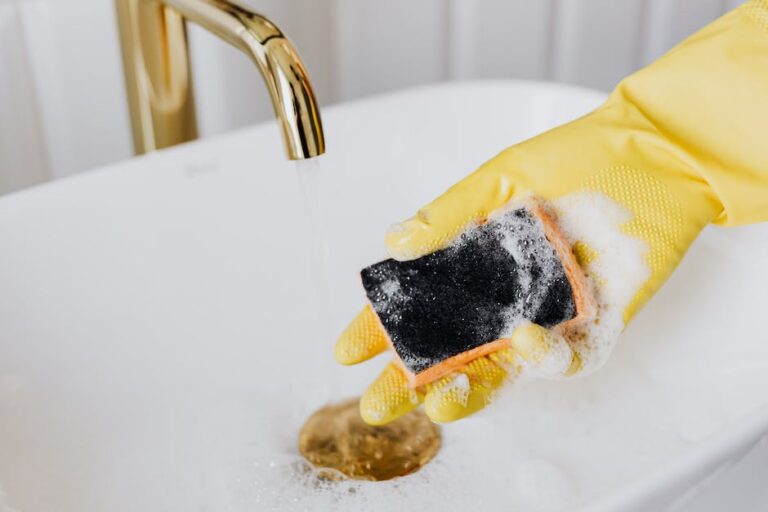
The Culprit: Built-Up Bacteria and Mold
 Bacteria and mold thrive in damp and dark environments, making your kitchen sink the perfect breeding ground. If you've noticed a musty smell coming from your sink, it's likely due to a buildup of these microorganisms. The combination of food particles, grease, and moisture that accumulates in your sink creates the ideal conditions for bacteria and mold to grow. Not only is this unpleasant to smell, but it can also be harmful to your health.
Ignoring this issue can lead to further problems such as clogged pipes and potential health hazards.
Bacteria and mold thrive in damp and dark environments, making your kitchen sink the perfect breeding ground. If you've noticed a musty smell coming from your sink, it's likely due to a buildup of these microorganisms. The combination of food particles, grease, and moisture that accumulates in your sink creates the ideal conditions for bacteria and mold to grow. Not only is this unpleasant to smell, but it can also be harmful to your health.
Ignoring this issue can lead to further problems such as clogged pipes and potential health hazards.
Effective Cleaning Methods
 To get rid of the musty smell and prevent it from coming back, you'll need to thoroughly clean your kitchen sink.
Using a combination of baking soda and vinegar is a natural and effective way to eliminate bacteria and mold from your sink.
First, sprinkle baking soda all over the sink, including the drain. Then, pour vinegar over the baking soda, creating a foaming reaction. Let it sit for a few minutes before scrubbing the sink with a brush or sponge. Be sure to also clean the drain and any other crevices where bacteria and mold may be hiding. Rinse the sink with hot water and dry it thoroughly with a clean cloth.
To get rid of the musty smell and prevent it from coming back, you'll need to thoroughly clean your kitchen sink.
Using a combination of baking soda and vinegar is a natural and effective way to eliminate bacteria and mold from your sink.
First, sprinkle baking soda all over the sink, including the drain. Then, pour vinegar over the baking soda, creating a foaming reaction. Let it sit for a few minutes before scrubbing the sink with a brush or sponge. Be sure to also clean the drain and any other crevices where bacteria and mold may be hiding. Rinse the sink with hot water and dry it thoroughly with a clean cloth.
Preventing Future Smells
 In addition to regular cleaning, there are other steps you can take to prevent the musty smell from returning.
After each use, make sure to run hot water down the drain for at least 30 seconds to flush out any food particles and bacteria.
You can also pour a cup of vinegar down the drain once a week to keep it clean and odor-free. Avoid leaving dirty dishes in the sink for extended periods, as this will only contribute to the buildup of bacteria and mold.
Keeping your sink and drain clean and dry is key to preventing the musty smell from coming back.
In addition to regular cleaning, there are other steps you can take to prevent the musty smell from returning.
After each use, make sure to run hot water down the drain for at least 30 seconds to flush out any food particles and bacteria.
You can also pour a cup of vinegar down the drain once a week to keep it clean and odor-free. Avoid leaving dirty dishes in the sink for extended periods, as this will only contribute to the buildup of bacteria and mold.
Keeping your sink and drain clean and dry is key to preventing the musty smell from coming back.
Seek Professional Help
 If the musty smell persists even after thorough cleaning and preventative measures, it may be a sign of a more serious issue.
Leaky pipes or a damaged garbage disposal can also lead to unpleasant smells in your kitchen sink.
In this case, it's best to seek the help of a professional plumber to properly diagnose and fix the problem.
Don't let a musty smell from your kitchen sink ruin the atmosphere of your home.
By following these cleaning and preventative techniques, you can have a fresh and odor-free kitchen sink.
Remember to regularly clean your sink, use natural cleaning methods, and seek professional help if needed. With these tips, you can say goodbye to the musty smell and hello to a clean and inviting kitchen.
If the musty smell persists even after thorough cleaning and preventative measures, it may be a sign of a more serious issue.
Leaky pipes or a damaged garbage disposal can also lead to unpleasant smells in your kitchen sink.
In this case, it's best to seek the help of a professional plumber to properly diagnose and fix the problem.
Don't let a musty smell from your kitchen sink ruin the atmosphere of your home.
By following these cleaning and preventative techniques, you can have a fresh and odor-free kitchen sink.
Remember to regularly clean your sink, use natural cleaning methods, and seek professional help if needed. With these tips, you can say goodbye to the musty smell and hello to a clean and inviting kitchen.



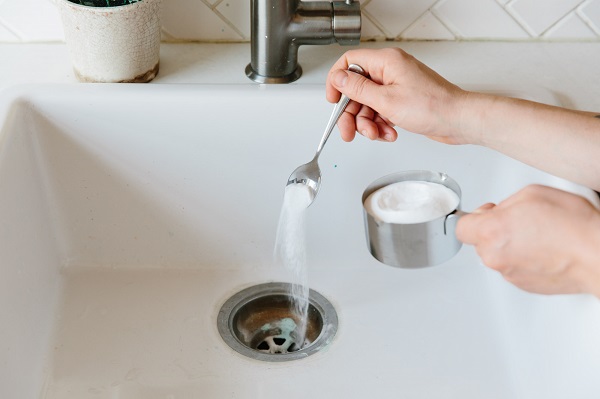


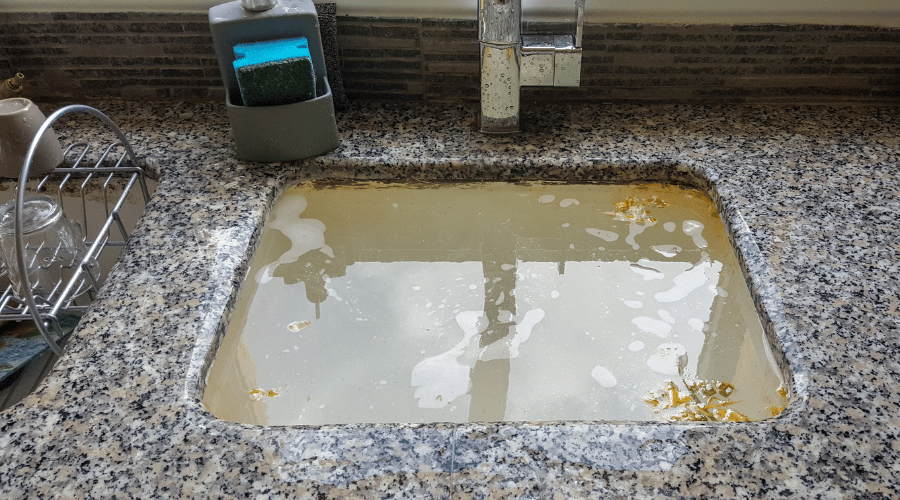


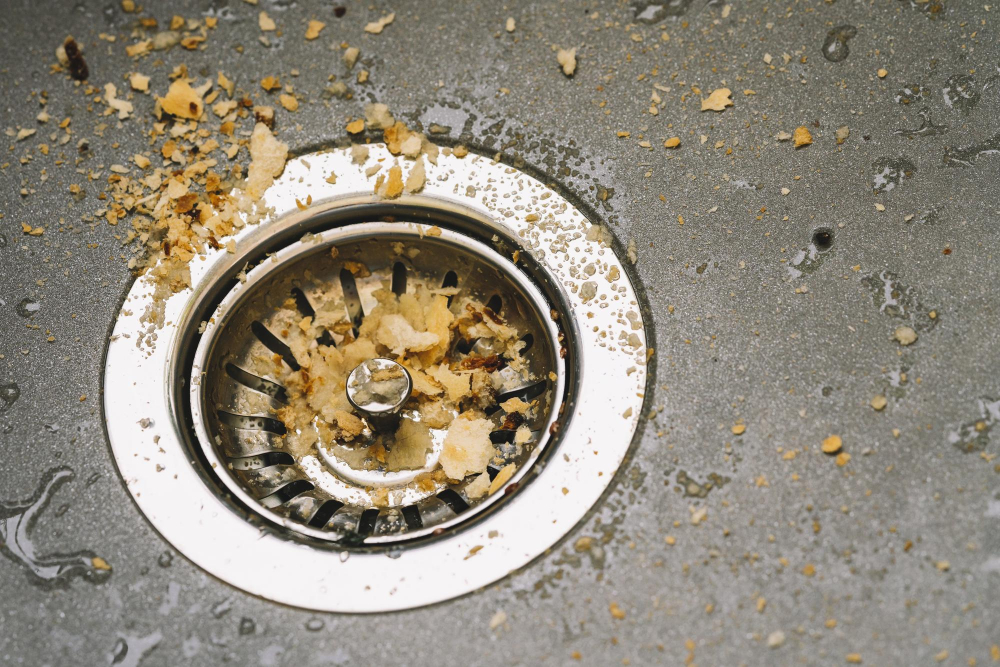










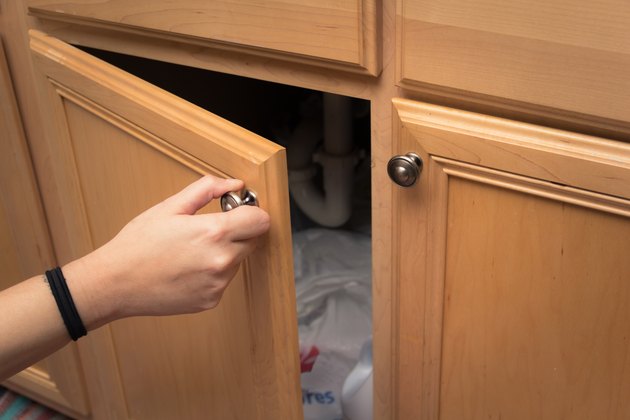
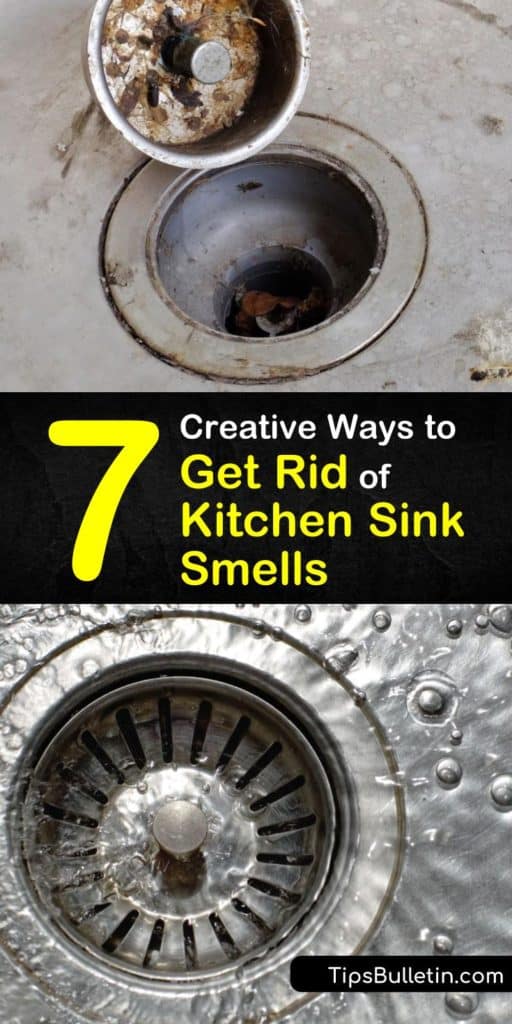







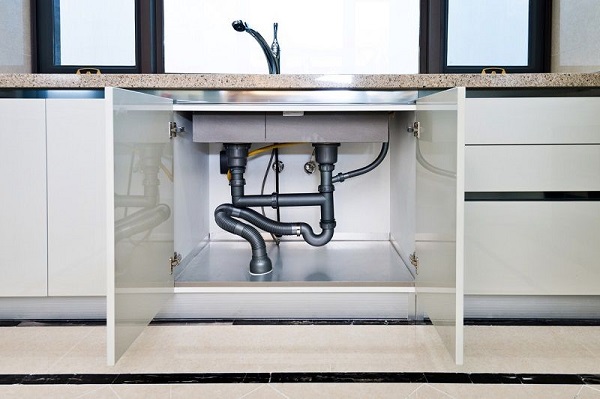
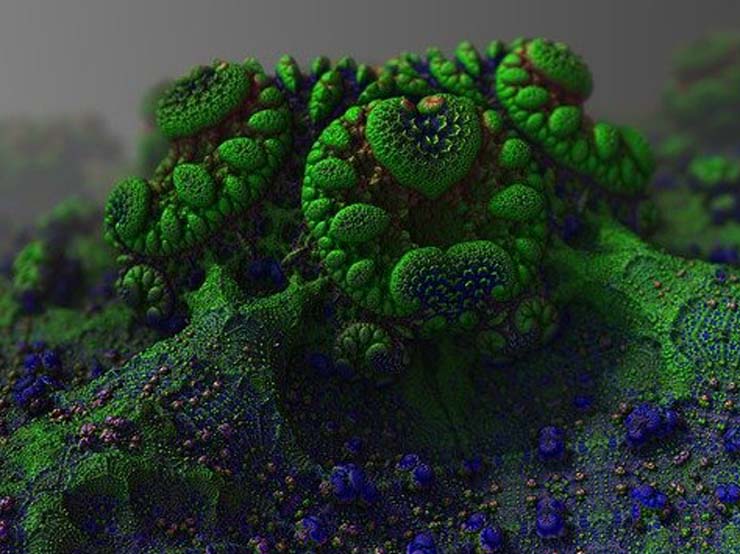













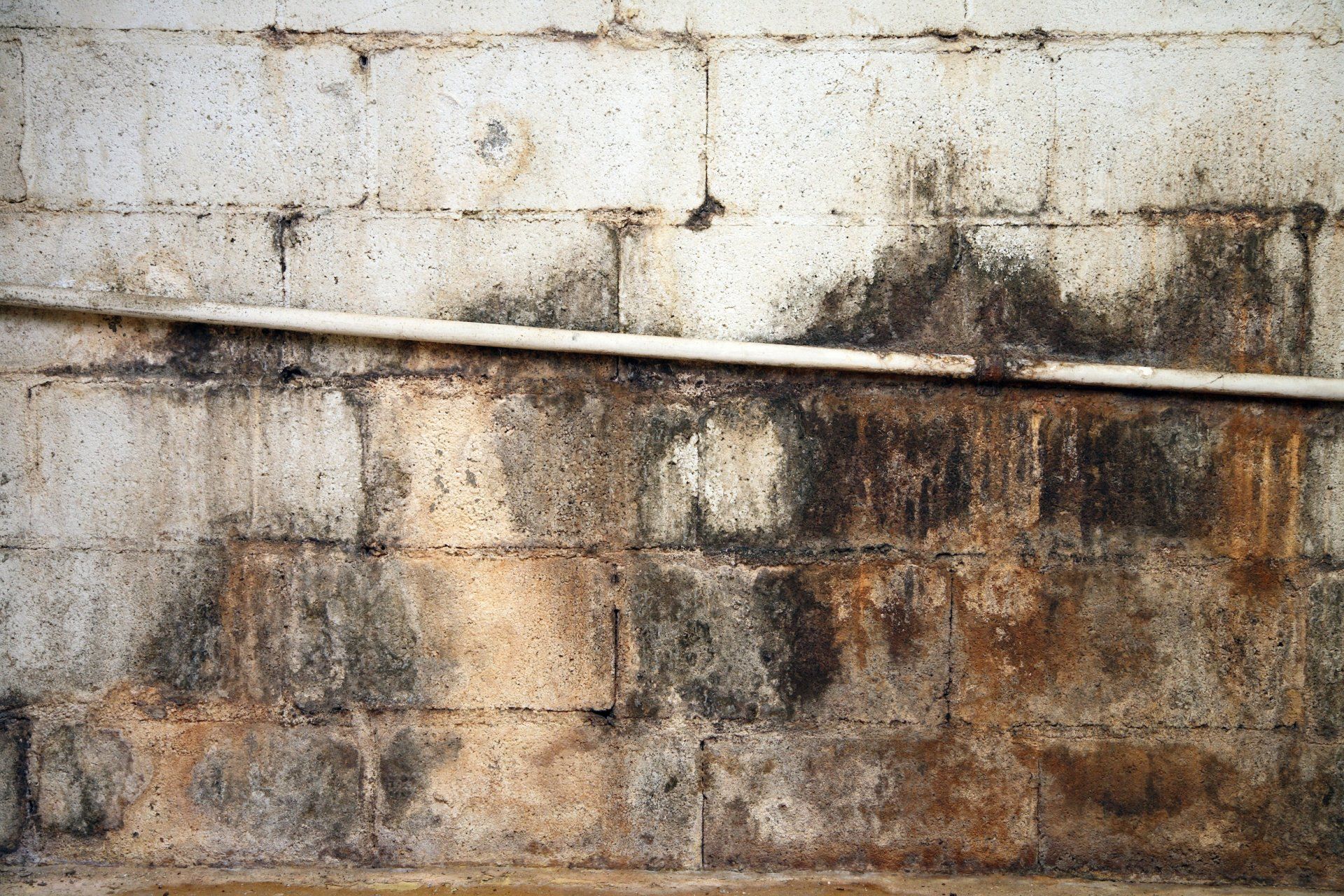













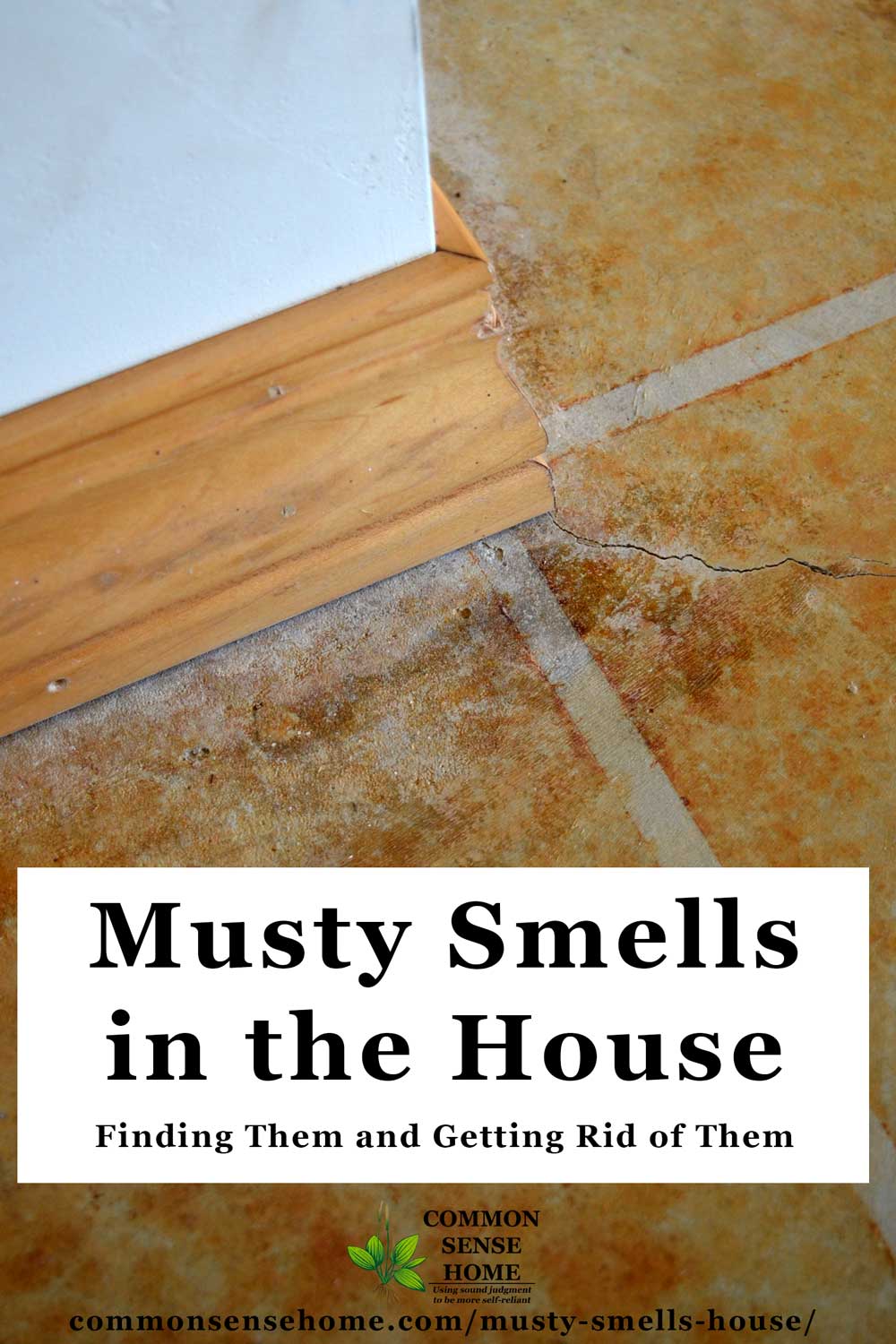



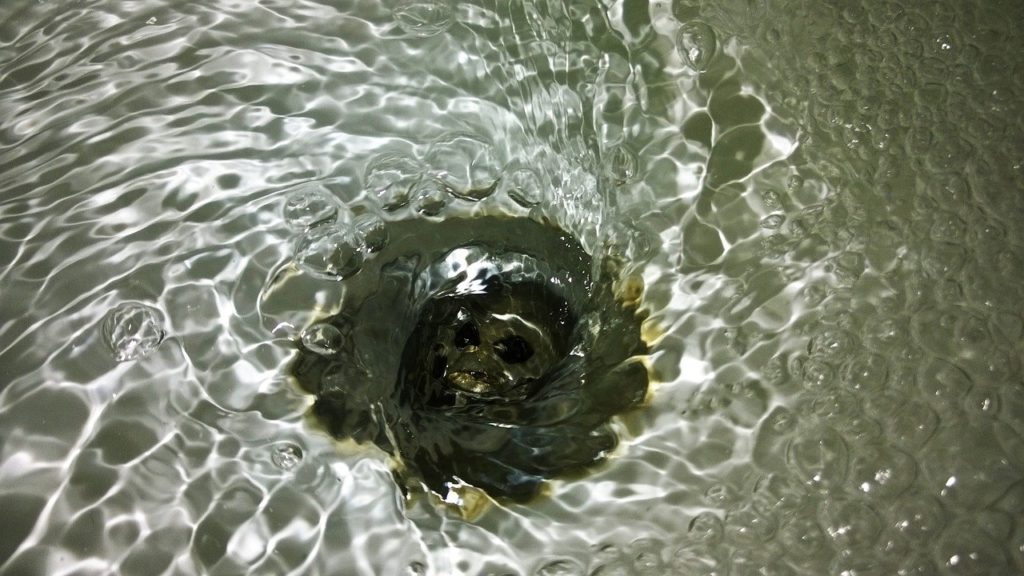




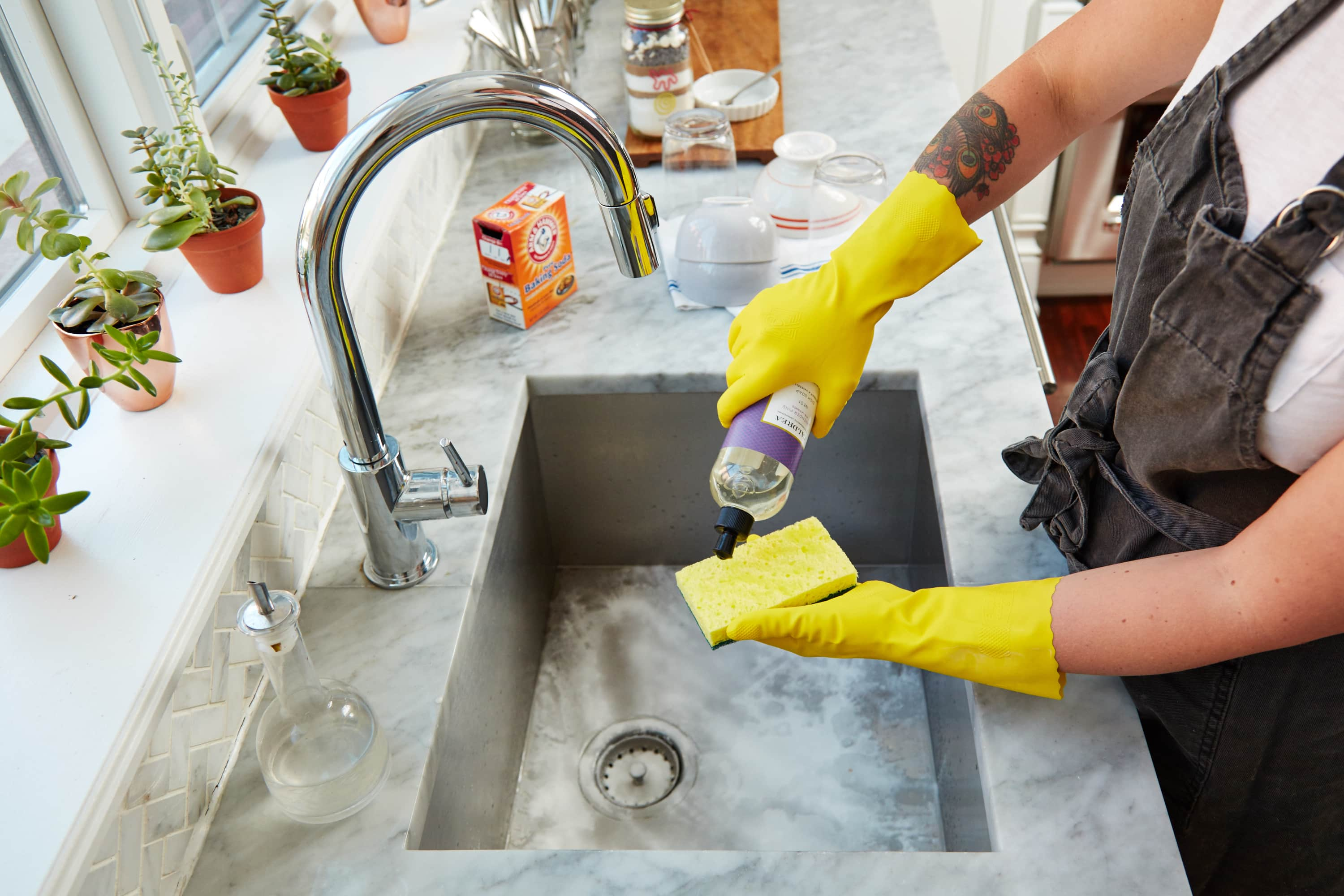
:max_bytes(150000):strip_icc()/the-best-method-for-cleaning-your-kitchen-sink-5649473-04-13cf66fa7dba4c07a2f13524cb82bbe3.jpg)
:max_bytes(150000):strip_icc()/why-does-my-kitchen-sink-smell-like-sewage-4707719_06_Citrus-Peels-Ice-and-Salt-9013424033674901bb333de977aae138.jpg)
